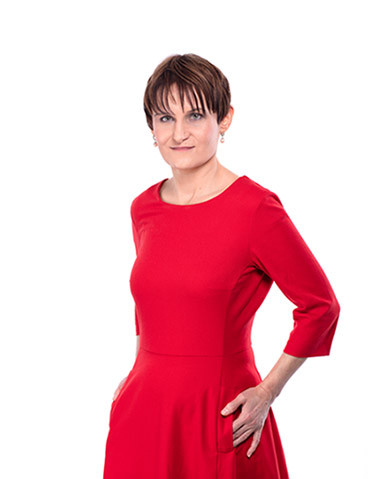Investments of VAT payers in leased real estate
Our tax attorney, Mgr. Hana Erbsová, has written an article which should be read by all the tenants intending to invest in the leased real estate and dealing with VAT.
In the past, the VAT payers used to prefer investment purchase of real estate which was subsequently leased to other VAT payers for their economic activity. Based on an agreement, the rent was invoiced incl. VAT and both payers (landlord as well as tenant) could have applied the input tax deduction (deduction of VAT paid in connection with acquisition, repairs, and modifications of real estate for a landlord, and deduction of VAT paid along with the rent for a tenant).
If the premises that can have a usual dwelling function are leased in that way, the amendment to the VAT Act, with effects since 1 January 2021, will change significantly the situation.
Mind the changes!
Since 1 January 2021, it will not be possible to apply VAT for lease of real estate between two VAT payers if the subject of lease is:
- Residential space (and land where the residential space is situated);
- Construction of a family house in accordance with the legal regulations regulating the Land Register (and land where the construction is situated, or right to build);
- Unit which does not include any other non-residential space than garage, cellar, or cabinet;
- Construction or a part of construction where at least 60 % of surface area is formed by residential space (and land where the construction is situated, or right to build).
Starting from 1 January 2021, such lease will be supplies exempted from tax without any claim on tax deduction.
Thus, a tenant will pay the rent only excl. VAT and will not be able to deduct the input VAT. Such change will significantly affect a landlord who acquired the real estate in 2011 and later on and applied the input tax deduction in this connection. If a landlord does not start using the real estate for provision of other supplies with a tax deduction claim, he/she will be obliged, starting from 2021, to adjust annually the tax deduction applied when acquiring the real estate. Starting from 2021 and ending in a year when a period of 10 years after acquisition of the real estate expires, a landlord will factually return to the state a 1/10 of the tax deduction applied in that way. This will accordingly apply also to the capital improvements made by a tax payer on the real estate if a period of 10 years after putting the capital improvements into a condition eligible for usage does not end as of 1 January 2021.
Newly for apartments!
The term “residential space” will be obviously a key term in this context. The VAT Act defines “residential space” as an apartment or another set of rooms, eventually individual residential room, whose structural and technical arrangement and equipment correspond to the requirements on permanent living and are designated for this purpose. The current methodology of the Financial Administration perceives this term quite broadly and emphasizes mainly the fact that the residential space is determined by its structural and technical arrangement, not by purpose of its usage; however, it must meet the requirements on permanent living. In addition to an apartment designated factually by an occupancy permit for living, the residential spaces in other constructions will also meet the criteria of a residential space if they meet the requirements on permanent living.
After 1 January 2021, the leases between VAT payers with possible VAT deduction, whereas the subject of lease is a unit for which “apartment” or “studio”, eventually “group of apartments” or “group of apartments and non-residential spaces” is registered in the Land Register as a manner of usage, and constructions with the following registered manner of usage: “premises for living”, “family house”, “multiple dwelling house”, “construction for family recreation”, “farmstead”, “accommodation facilities”, “multi-purpose construction” and “other construction”, may become a subject of interest of the tax administrators. However, it is not excluded that a tax administrator assesses a space, which has not been finally inspected for residential purposes but its factual arrangement and equipment are adjusted to permanent living and the space is obviously used in this way, as a residential space for purpose of VAT taxation.
Any possible change in the manner of usage of the real estate is not quite simple; the change must be firstly announced to a respective Building Office and it must be documented in a method stipulated by the law; based on an approval or permit, it is possible to ask for a change in the registration in the Land Register.
The VAT payers who want to lease the real estate with possible VAT deduction even after 1 January 2021 should start concerning themselves with the fact whether the real estate fulfils the characteristics of a residential space and whether the official registration of the manner of its usage in the Land Register corresponds with the reality, eventually they should ensure a remedy.
Since 1 April 2019, the VAT Act has been dealing also with the adjustment of deduction in connection with former significant repair of supplied real estate (i.e. repair which is not a capital improvement and whose value without any tax exceeds CZK 200,000). However, this obligation will not affect the landlords after 1 January 2021. The obligation of such adjustment is imposed firstly in case of possible sale (supply) of the real estate. A tax payer who finished the significant repair firstly after 1 April 2019 can voluntarily decide on the adjustment of deduction upon supply of the real estate.
